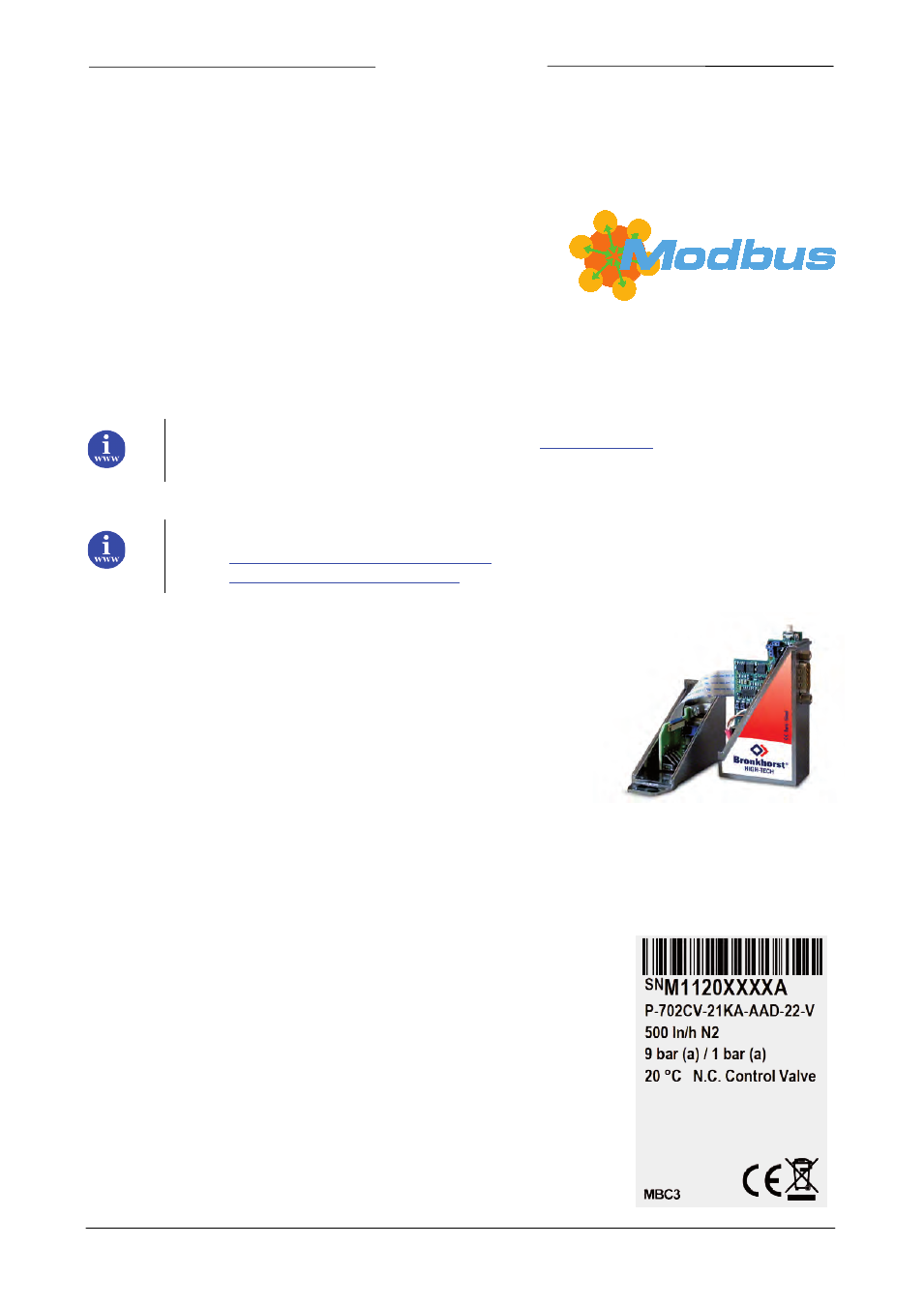1 general product information, 1 introduction, 2 multibus types – Bronkhorst Modbus slave interface User Manual
Page 4: Ntroduction, Ultibus types

BRONKHORST
®
1 GENERAL PRODUCT INFORMATION
1.1 Introduction
This manual covers the Modbus interface, which offers a direct
connection to Modbus for Bronkhorst
1)
digital mass-flow / pressure
meters / controllers. The Modbus instrument will behave as a slave. This
means all communication (instructions / readout) will be performed by a
master device on the same Modbus system. Mostly this will be a PC
controlling a process. This manual explains how to install a Bronkhorst
instrument to your Modbus system.
1)
Bronkhorst: This includes Bronkhorst High-Tech B.V. , Bronkhorst Cori-Tech B.V. and
M+W Instruments GmbH.
More detailed information about Modbus can be found at
or any website of the
(local) Modbus organisation of your country (when available).
The implementation of the Modbus interface is based on the following standards:
[1]
December 28, 2006
[2]
December 20, 2006
1.2 Multibus types
In 2000 Bronkhorst developed their first digital instruments according to the
“multibus” principle. The basic pc-board on the instrument contained all of
the general functions needed for measurement and control, including alarm,
totalizing and diagnostic functions. It had analog I/O-signals and also an
RS232 connection as a standard feature. In addition to this there is the
possibility of integrating an interface board with DeviceNet™, Profibus-DP
®
,
Modbus , FLOW-BUS or EtherCAT protocol. The first generation (MBC-I) was
based on a 16 bit Fujitsu controller. It was superseded in 2003 by the
Multibus type 2 (MBC-II). This version was also based on the 16 bit Fujitsu controller but it had several improvements
to the MBC-I. One of them is the current steering of the valve. It reduced heat production and improved control
characteristics. The latest version Multibus controller type 3 (MBC3) is introduced in 2011. It is build around a 72MHz
32 bit NXP ARM controller. It has AD and DA controllers on board which makes it possible to measure noise free and
control valves without delays. The internal control loop runs 6 times faster compared to the MBC-II therefore control
stability has improved significantly. It also has several improved functions like reverse voltage protection, inrush
current limitation and overvoltage protection.
MBC3 instruments can be recognised by the “MBC3” placed on lower left side
of the instrument label (see example).
Page 4
Modbus interface
9.17.035
